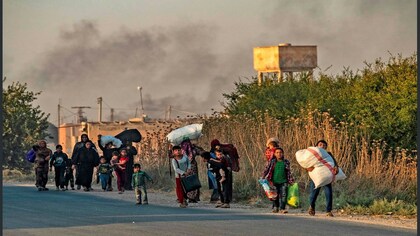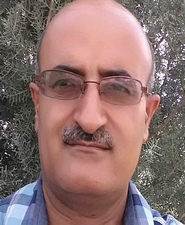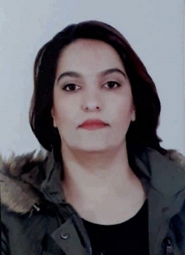Iran's Latin America Threat
14:11 - 18 December 2011

Lawmakers are taking action to thwart Iran’s diplomatic and espionage activities in South America, including partnerships with nations hostile to the U.S.—such as Venezuela, which is suspected of helping Tehran plot a cyber attack on America.
During a state visit to Tehran on July 30, 2006, Venezuela’s PresidentHugo Chavez was awarded the High Medal of the Islamic Republic of Iran. At the time, official Washington barely noticed. Iran’s activities in Iraq and Afghanistan were getting far more attention than the inroads the Islamic Republic was making in Latin America.
Around the time Chavez was in Tehran, a professor at the National Autonomous University of Mexico (UNAM) began meeting with Iran’s and Venezuela’s ambassadors in Mexico, and computer engineering students and faculty, in a plot to build a cyberweapon aimed at U.S. infrastructure.
In 2007, the UNAM professor began secretly filming these meetings, where the students and diplomats discussed how to gain unauthorized access to the U.S. industrial computers in American nuclear facilities.
Today, U.S. intelligence and Congress are taking stark notice of Iran’s moves in Latin America, particularly after Univision, the Spanish-language broadcast network, aired that hidden footage from 2007 this week, The Daily Beast has learned.
Next month, Sen. Robert Menendez, D-N.J., who chairs the Western Hemisphere subcommittee of the Senate Foreign Relations Committee, will host a hearing to examine the “threat to the United States posed by Iran’s diplomatic and espionage activities in Latin America.”
And Rep. Ileana Ros-Lehtinen, R-Fla., the chairwoman of the House Foreign Affairs Committee, also is pledging to hold new hearings on Iran’s role in Latin America. “It is no secret that Iran is actively working with its anti-American cohorts in Latin America to threaten U.S. interests,” she said. “Iran’s activities in our region pose a serious threat to our security and must be faced head-on.”
In an interview Wednesday, Menendez said he was particularly interested in new allegations made this week in a documentary broadcast by Univision.
“If you look at the Univision report, which overall it seemed pretty solid, it does show Iranian and Venezuelan students, asking them to hack U.S. computers and sending the information back to Caracas and Tehran,” Menendez said. “It seems these diplomats from these countries—Venezuela and Iran—are clear in their intention to see if they could get cyber passwords and information on U.S. nuclear plants. It does seem the Iranian embassy did pay for some of the students to go to Iran as well, and paid for some computers for the students.”
The hidden footage was taped by Juan Carlos Munoz Ledo. In an interview with The Daily Beast, Ledo said he and other students were asked “to attack the mainframes and computers associated with government agencies and major businesses in the United States.” Mohammad Hassan Ghadiri, a former Iranian ambassador to Mexico, acknowledged the meetings in an interview with Univision, but said there was no plot to launch such cyberattacks.
When contacted Wednesday in Tehran by cell phone by The Daily Beast, Ghadiri declined to answer questions about the allegations made by Ledo.
These explosive charges have made their way around the intelligence community, but so far the agencies are not commenting publicly on the matter. On Monday the State Department saw the report and said the U.S. government could not yet corroborate the charges, but said the allegations were “disturbing.”
One recently retired senior U.S. military officer who specialized in cyber policy, said Iran did not register as a first-tier cyber threat to the United States—like Russia and China did.
Bob Gourley, the former chief technology officer of the Defense Intelligence Agency and currently editor of CTOvision.com said, “China and Russia both pose significant threats in terms of military and economic cyber espionage and the threat of potentially devastating cyberattack. Iran has capabilities, but they are nowhere near as significant as those of China and Russia.”
Nonetheless, other former intelligence officials said the threat of Iran in Latin America is real. In October, the Justice Department charged an American citizen with seeking assistance from the Mexican drug cartel, Los Zetas, in a murder-for-hire plot against the Saudi ambassador to the United States. “The Iranians believe that we are at war with them,” one recently retired former senior intelligence official told The Daily Beast. “We don’t see it that way, but they certainly do.”
In particular, the Iranians in recent years have blamed a spate of murders of their nuclear scientists on Israeli and Western intelligence services. Last year, the Iranians acknowledged that a computer worm known as Stuxnethad for a period disabled the country’s nuclear centrifuges. That worm is believed to have infected the industrial logic boards of Iran’s Natanz centrifuge facilities, initially through thumb drives.
A worry for U.S. intelligence analysts is the close alliance between Venezuela and Iran. In recent years, U.S. intelligence analysts have pointed to regular direct flights between Caracas and Tehran as a troubling development. “We worry about these flights because they are not checked at the airports and often times they have no passengers other than the crew. What is in the cargo?” one current U.S. intelligence officer told The Daily Beast.
Cynthia Arnson, the director of the Latin American Program at the Woodrow Wilson Center, said, “Venezuela is the port of entry for Iran in Latin America. Hugo Chavez has rolled out the red carpet and facilitated relations between Iran and other governments in the region.” Arnson added, however, “I think there is a lot more photo ops and signing of memoranda of understandings than there is actual financing of developmental infrastructure projects.”
Menendez said he is seeing a trend. “You have the allegations that seem pretty solid about the efforts to assassinate the Saudi ambassador, thinking they were using Mexican cartels, there are the reports that come out on financing Hizbullah, and certainly the flights that have been taking place between Venezuela and Iran.
“All of these connections are more than enough to raise questions,” he said. “You have to say to yourself at some point this is more than one big coincidence.”
Source – The Daily Beast
During a state visit to Tehran on July 30, 2006, Venezuela’s PresidentHugo Chavez was awarded the High Medal of the Islamic Republic of Iran. At the time, official Washington barely noticed. Iran’s activities in Iraq and Afghanistan were getting far more attention than the inroads the Islamic Republic was making in Latin America.
Around the time Chavez was in Tehran, a professor at the National Autonomous University of Mexico (UNAM) began meeting with Iran’s and Venezuela’s ambassadors in Mexico, and computer engineering students and faculty, in a plot to build a cyberweapon aimed at U.S. infrastructure.
In 2007, the UNAM professor began secretly filming these meetings, where the students and diplomats discussed how to gain unauthorized access to the U.S. industrial computers in American nuclear facilities.
Today, U.S. intelligence and Congress are taking stark notice of Iran’s moves in Latin America, particularly after Univision, the Spanish-language broadcast network, aired that hidden footage from 2007 this week, The Daily Beast has learned.
Next month, Sen. Robert Menendez, D-N.J., who chairs the Western Hemisphere subcommittee of the Senate Foreign Relations Committee, will host a hearing to examine the “threat to the United States posed by Iran’s diplomatic and espionage activities in Latin America.”
And Rep. Ileana Ros-Lehtinen, R-Fla., the chairwoman of the House Foreign Affairs Committee, also is pledging to hold new hearings on Iran’s role in Latin America. “It is no secret that Iran is actively working with its anti-American cohorts in Latin America to threaten U.S. interests,” she said. “Iran’s activities in our region pose a serious threat to our security and must be faced head-on.”
In an interview Wednesday, Menendez said he was particularly interested in new allegations made this week in a documentary broadcast by Univision.
“If you look at the Univision report, which overall it seemed pretty solid, it does show Iranian and Venezuelan students, asking them to hack U.S. computers and sending the information back to Caracas and Tehran,” Menendez said. “It seems these diplomats from these countries—Venezuela and Iran—are clear in their intention to see if they could get cyber passwords and information on U.S. nuclear plants. It does seem the Iranian embassy did pay for some of the students to go to Iran as well, and paid for some computers for the students.”
The hidden footage was taped by Juan Carlos Munoz Ledo. In an interview with The Daily Beast, Ledo said he and other students were asked “to attack the mainframes and computers associated with government agencies and major businesses in the United States.” Mohammad Hassan Ghadiri, a former Iranian ambassador to Mexico, acknowledged the meetings in an interview with Univision, but said there was no plot to launch such cyberattacks.
When contacted Wednesday in Tehran by cell phone by The Daily Beast, Ghadiri declined to answer questions about the allegations made by Ledo.
These explosive charges have made their way around the intelligence community, but so far the agencies are not commenting publicly on the matter. On Monday the State Department saw the report and said the U.S. government could not yet corroborate the charges, but said the allegations were “disturbing.”
One recently retired senior U.S. military officer who specialized in cyber policy, said Iran did not register as a first-tier cyber threat to the United States—like Russia and China did.
Bob Gourley, the former chief technology officer of the Defense Intelligence Agency and currently editor of CTOvision.com said, “China and Russia both pose significant threats in terms of military and economic cyber espionage and the threat of potentially devastating cyberattack. Iran has capabilities, but they are nowhere near as significant as those of China and Russia.”
Nonetheless, other former intelligence officials said the threat of Iran in Latin America is real. In October, the Justice Department charged an American citizen with seeking assistance from the Mexican drug cartel, Los Zetas, in a murder-for-hire plot against the Saudi ambassador to the United States. “The Iranians believe that we are at war with them,” one recently retired former senior intelligence official told The Daily Beast. “We don’t see it that way, but they certainly do.”
In particular, the Iranians in recent years have blamed a spate of murders of their nuclear scientists on Israeli and Western intelligence services. Last year, the Iranians acknowledged that a computer worm known as Stuxnethad for a period disabled the country’s nuclear centrifuges. That worm is believed to have infected the industrial logic boards of Iran’s Natanz centrifuge facilities, initially through thumb drives.
A worry for U.S. intelligence analysts is the close alliance between Venezuela and Iran. In recent years, U.S. intelligence analysts have pointed to regular direct flights between Caracas and Tehran as a troubling development. “We worry about these flights because they are not checked at the airports and often times they have no passengers other than the crew. What is in the cargo?” one current U.S. intelligence officer told The Daily Beast.
Cynthia Arnson, the director of the Latin American Program at the Woodrow Wilson Center, said, “Venezuela is the port of entry for Iran in Latin America. Hugo Chavez has rolled out the red carpet and facilitated relations between Iran and other governments in the region.” Arnson added, however, “I think there is a lot more photo ops and signing of memoranda of understandings than there is actual financing of developmental infrastructure projects.”
Menendez said he is seeing a trend. “You have the allegations that seem pretty solid about the efforts to assassinate the Saudi ambassador, thinking they were using Mexican cartels, there are the reports that come out on financing Hizbullah, and certainly the flights that have been taking place between Venezuela and Iran.
“All of these connections are more than enough to raise questions,” he said. “You have to say to yourself at some point this is more than one big coincidence.”
Source – The Daily Beast



